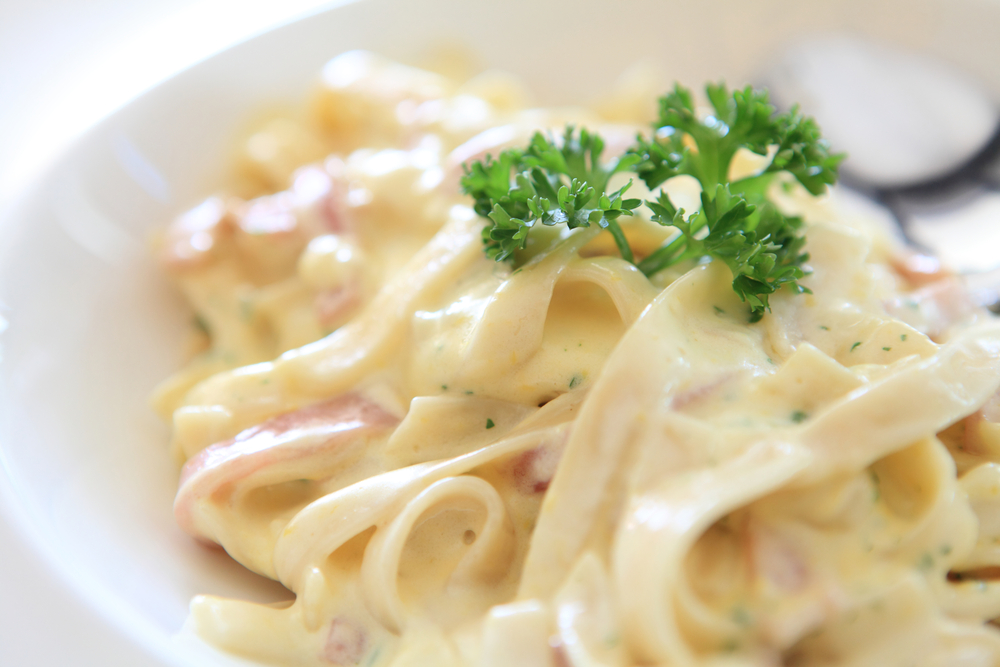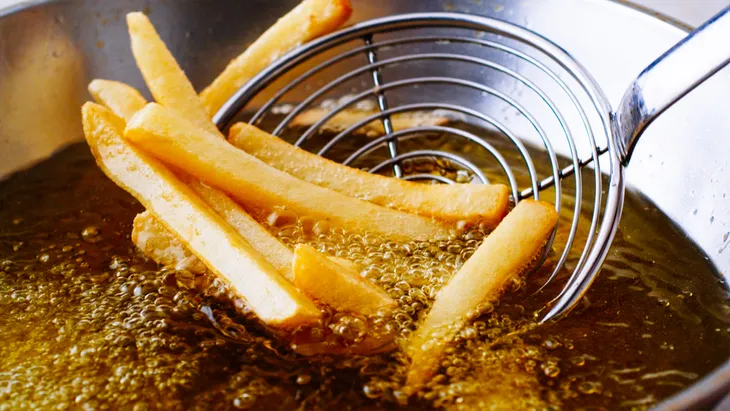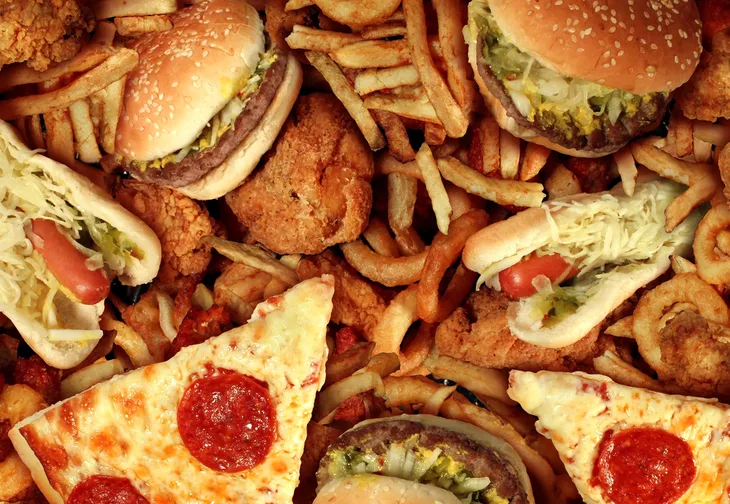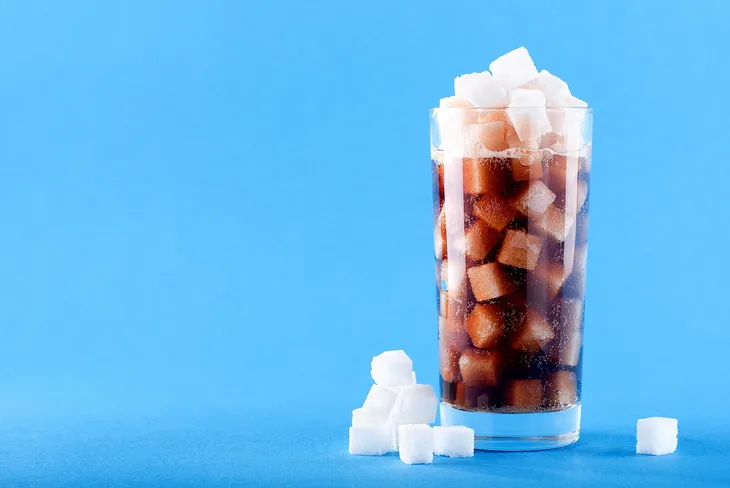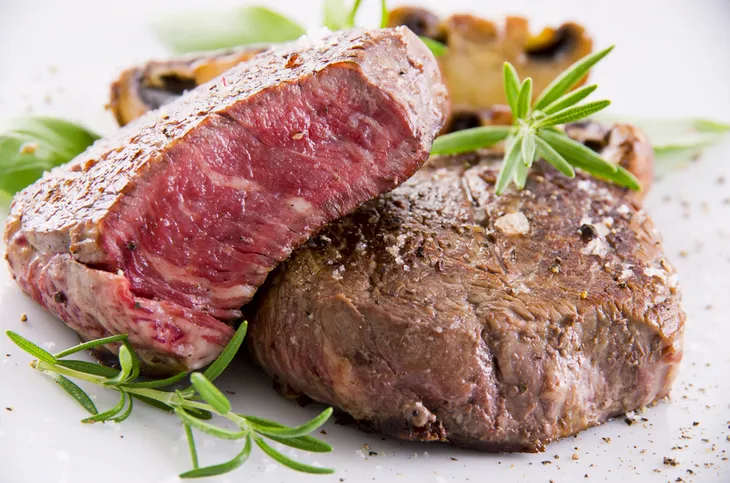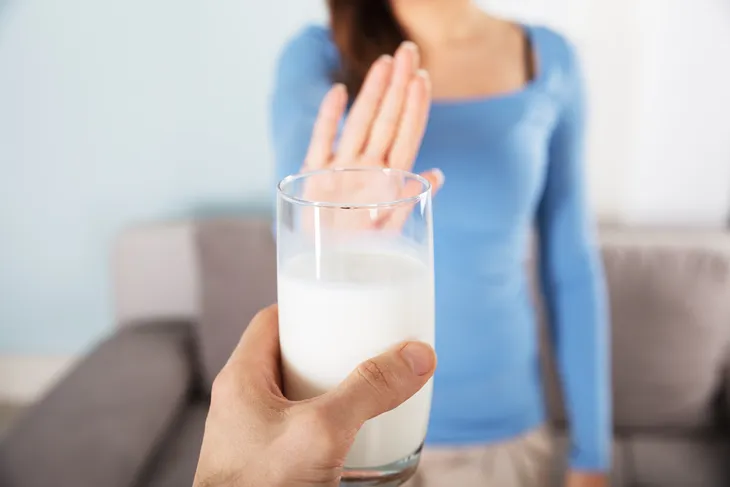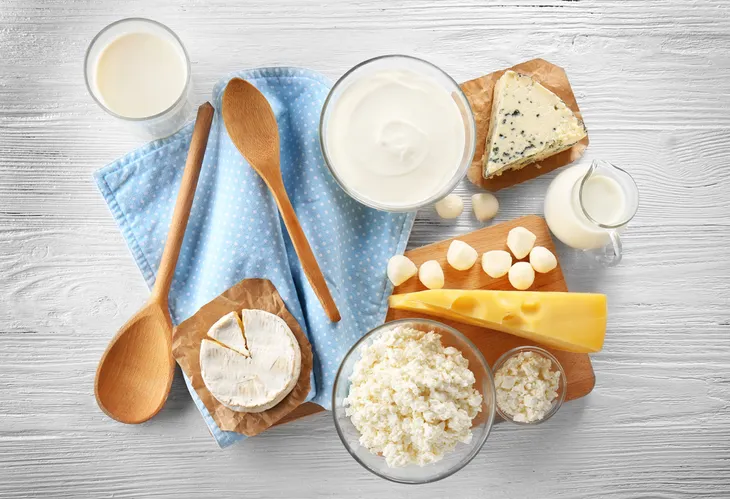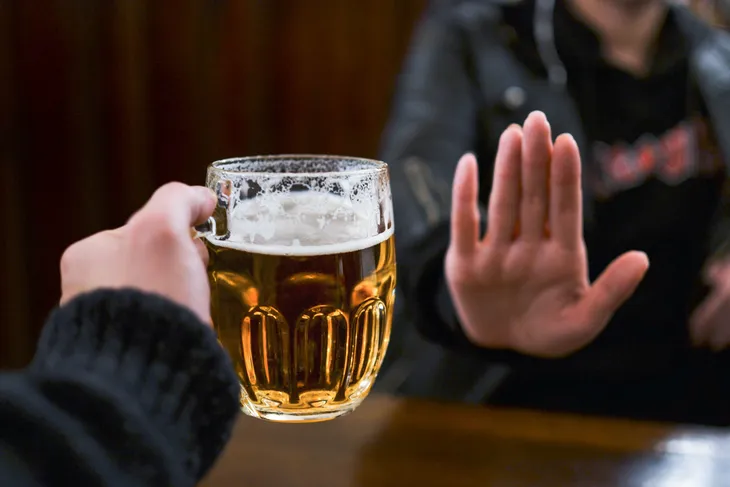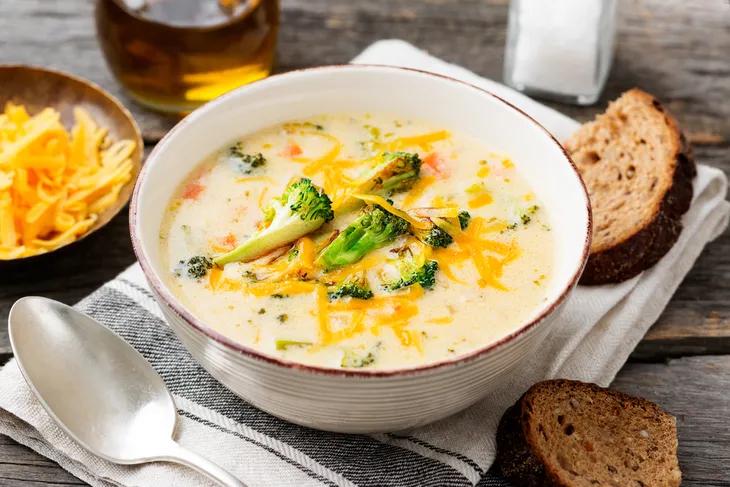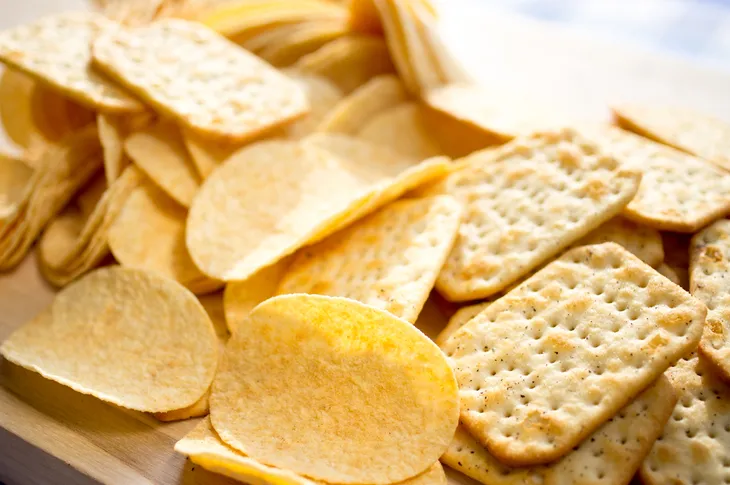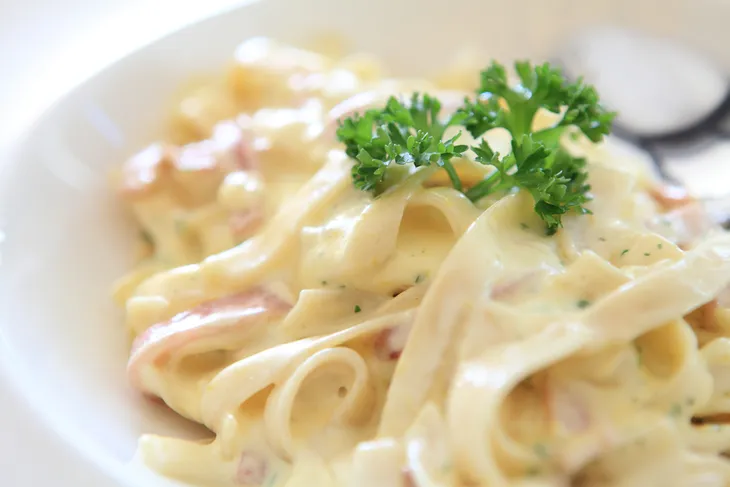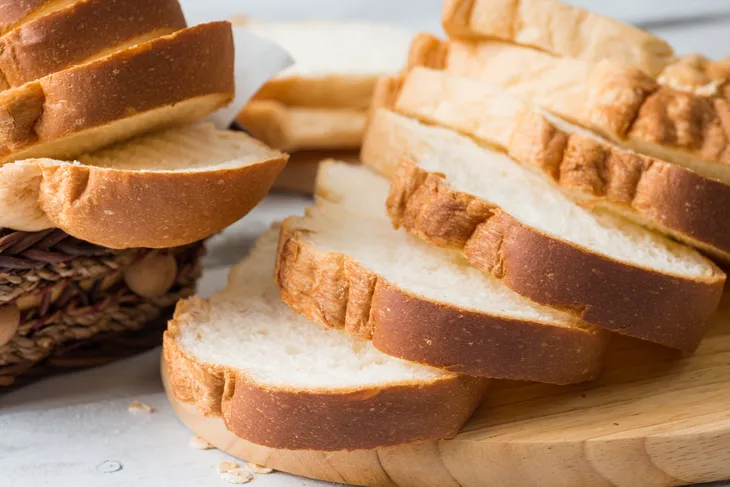Not everyone thinks twice about their liver health even if they should be. The liver has a major impact on a person’s overall health and wellbeing. In fact, CNBC reports that around 80 million Americans have non-alcoholic fatty liver disease and many of them don’t even know it. This disease can lead to severe complications like cirrhosis, cancer, or even liver failure if not treated early enough.
You could unknowingly be putting your liver health at risk simply by consuming common foods and beverages. The good news is that knowing what items should be limited in your diet is the first step in taking control of your liver health. Let’s take a look at 11 foods and drinks that can harm your liver.
Fries
As delicious as french fries are, they aren’t the best for your liver. It’s a food that can put the liver into overdrive when breaking down its high fat count. Consuming saturated fat in fries can also result in long-term inflammation that’s linked to cirrhosis.
Instead, try eating baked sweet potato fries. While they may be higher in calories, sweet potato fries are more nutrient-dense. Healthline says people typically won’t eat as many sweet potato fries compared to regular fries. That type of moderation can prevent overconsumption and hopefully reduce the amount of fat you’re eating overall.
Other Fried Foods
Other fried foods can do damage to your liver too! Foods like fried chicken, onion rings, and anything else deep-fried can wreak havoc on your liver.
Just like fries, these types of foods are high in fat, especially saturated fat which makes it harder for your liver to do its job. WebMD explains, “Over time it may lead to inflammation, which in turn could cause scarring of the liver that’s known as cirrhosis.”
Soda
Did you know that a 12-ounce can of Coke contains 10-teaspoons of sugar? This means that one soda per day nearly puts you over the recommended daily intake of 12-teaspoons, according to the Centers for Disease Control and Prevention (CDC).
Consuming too much sugar, which often comes from drinking soda, can lead to a fatty buildup linked to liver disease. WebMD reports that some studies show it can be equally damaging to the liver as alcohol even if you’re not overweight. Try to minimize your daily sugar intake by avoiding soda and other sugary treats as much as you can.
Red Meat
Grilling a hamburger on the barbecue won’t hurt once in a while, but regular consumption of red meats could lead to serious liver consequences. A study published in the U.S. National Library of Medicine found several conclusions link meat intake with chronic liver disease (CLD) and liver cancer.
The levels of saturated fat in red meat are a big factor that puts your liver’s health at risk. Alternatively, the study found that eating white meat has a lower risk for CLD and liver cancer. This gives you more reason to opt for a chicken burger rather than a beef burger at the next cookout.
Milk
Another food culprit with high amounts of unhealthy fat is milk. According to LiveStrong, whole milk contains 4.6-grams of saturated fat. They also shared that vanilla ice cream has 4.5-grams of saturated fat and processed American cheese contains 3.8-grams of saturated fat.
It can be easy to overindulge in dairy products, which is risky since excess amounts of saturated fat are a contributing factor to fatty liver disease.
Saturated Fat Intake
The CDC says less than 10-percent of calories per day should come from saturated fats. To limit your saturated fat intake, see if your grocery store offers low-fat or dairy-free alternatives to your favorite cheese, milk, ice cream, and other dairy products.
Alcohol
One of the biggest dangers to your liver is alcohol. The reason why it wreaks havoc on your liver is that the body doesn’t have a way to store alcohol. Your liver has to detoxify and remove alcohol from your blood. When you drink too much, the liver can’t process it quickly enough which leads to fatty liver.
Cleveland Clinic says that early-stage alcoholic liver disease develops in about 90-percent of people who drink more than 1.5 to 2-ounces per day. It doesn’t take much, but luckily people can reverse the early stages of a fatty liver in 4 to 6-weeks by abstaining from alcohol.
Soup
Medical News Today says that too much salt damages the liver and leads to liver fibrosis. To put it simply, salt causes oxidative stress which can increase inflammatory cells. This promotes the death of liver cells and leads to progressive fibrosis.
Processed foods and meals prepared in restaurants often contain copious amounts of salt, including soup. While soup isn’t necessarily bad for you, it’s best to avoid bowls that contain excessive amounts of salt. Choose low sodium soup and/or pay attention to the nutrition food label, low sodium is usually something that is <140-mg per serving and moderate sodium <400-mg.
Other Salty Foods
Soup isn’t the only salty food you should avoid. All foods high in salt like potato chips, crackers, and the like should also be enjoyed in moderation.
Just like soup, other salty foods can cause liver fibrosis. Eat This, Not That explains this means the liver “contains abnormally large amounts of scar tissue and doesn’t work well.” Unfortunately, fibrosis doesn’t present any symptoms. But severe scarring can lead to liver cirrhosis which does have symptoms.
Whipped Cream
Have you ever heard someone say that too much of a good thing isn’t a good thing? Well, that’s the case with whipped cream. While it’s a sweet add-on to your coffee, ice cream, or cake, consuming whipped cream too often can be bad for your health.
A cup of cream has about 23.2-grams of saturated fat. It’s also high in calories and sugar. This type of recipe leads to fatty buildup which, overall, is not the best thing for your liver.
Pasta
Many types of pasta are made with white flour. Unfortunately, white flour is harder for the liver to process since it has less fiber. Fiber is essential to help with weight control, which is why it’s recommended those on a liver-friendly diet implement lots of it into their meals.
When eating grains, opt for whole-grain options. Healthline explains how carbohydrates from whole grains give your body energy and could even help you live longer.
White Bread
Similar to pasta, white bread can also wreak havoc on your liver. White bread and other refined carbs are stripped of fiber and have a higher glycemic index (GI).
High GI foods can cause your blood sugar to spike which triggers your pancreas to produce the hormone that regulates glucose in the body. Even though this is a normal reaction, eating foods like this can cause your pancreas to become exhausted and in turn, cause your body to become resistant to that hormone. This is believed to be a cause of non-alcoholic fatty liver disease.
Foods That Are Good For Your Liver
Although there are many foods that are bad for your liver, there are also plenty that can do a whole lot of good for it too. This includes a diet that’s low in fats, high in fiber, and covers all main food groups. Drinking a ton of water is also important to prevent dehydration.
Here are the types of foods you should be prioritizing in your diet, according to the Liver Foundation:
- Fresh Fruits and vegetables
- Fiber-rich whole grains
- Lean, white meats such as chicken or turkey
- Fish
- Low-sodium foods (low sodium <140-mg per serving)
- Low-fat dairy products
Lifestyle Tips for a Healthy Liver
In addition to making adjustments to your diet, there are other lifestyle changes you can make that can help promote a healthy liver. For starters, make sure you get regular exercise — about 3o-minutes most days of the week. This can be as simple as going for a walk, jog, or bike ride, or trying an at-home workout.
Next, be sure to manage your cholesterol levels. One way you can do this is by watching your sugar and saturated fat intake. Finally, fatty liver disease and diabetes often happen together, so make sure you get it under control. Thankfully, you can achieve this through diet, exercise, and guidance from your doctor.
